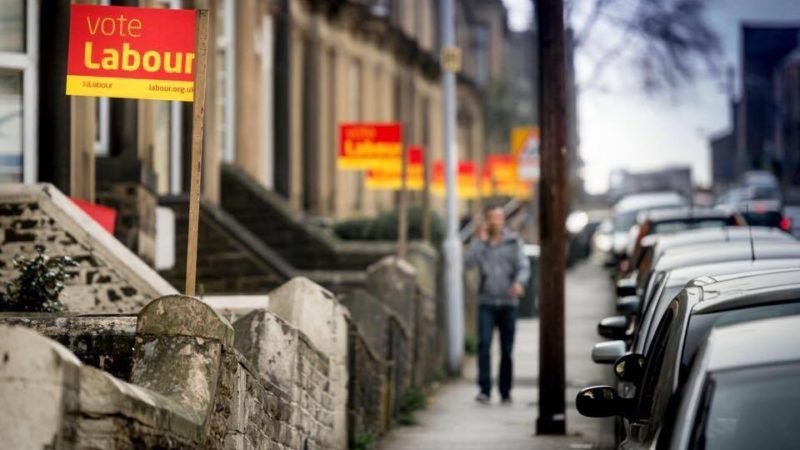
How to reconnect with communities in places that we have lost in the general election has become one of the main talking points in Labour’s leadership race. The various leader and deputy campaigns have offered their own analysis of what went wrong for us and how to turn the tide, but on a general note, everyone in Labour agrees that ’empowerment of communities’ in some shape or form lies at the heart of our electoral rehabilitation.
Less clear in the contest so far is what Labour’s leadership hopefuls mean when they talk about ‘communities’. We speak of towns vs cities, ‘heartlands’ and the ‘Red Wall’ with – so far – little definition of who it actually is that we seek to reach out to and win back or win over. This loose discussion centred on an abstract concept of a community has at times felt a bit uneasy.
Too often, immigrant and ethnic minority communities have not been included in a definition of community articulated by politicians. If Labour wants to put forward a progressive definition of community and put the minds of minorities and migrants at rest, we need our leaders to adopt policies that are not just inclusive in rhetoric but also treat us as equal citizens. This will also be key to building an electoral coalition based on solidarity.
For a definition of community to be inclusive, we must reject nationalism, racism and xenophobia. Whilst the most vulgar elements of the far right will attack migrant and minority communities with slurs and violence, institutional racism and xenophobia is often more subtle; woven into the fabric of this country, through its laws and integrated into our public discourse, through exclusionary – but not necessarily outright aggressive, and therefore harder to spot – language.
Labour members and representatives are not immune from consolidating the harmful nationalist narrative that benefits the Conservative Party. There is a simple reason why pandering to nationalism will, in the end, always benefit the right: it is a tool employed by the ruling class to maintain their power and put blame for their failings somewhere else.
People are told that as citizens they are members of a national community of equals. But we know that in Britain this could not be further from the truth. The recently published Marmot report has shown that people in the most deprived parts of the country are more likely to die prematurely than those living in more affluent parts. Homelessness is rising. And class still determines educational and job outcomes: those who are born privileged are more likely to remain so, whereas working-class young people have higher obstacles to overcome.
The national community is, as this illustrates, a smoke screen to obscure these different experiences of work, health and housing that exist between working-class Britons and the upper and middle classes. The difference in quality of life between the poorest and richest people in Britain is stark. But to shift the blame for this away from themselves, Britain’s upper classes have found the perfect scapegoats: immigrants. One example of this is the public discussion around migrants’ rights to access the NHS.
But the political framing of free movement, and plans to increase investment in education and skills as it ends, also falls under this umbrella. The government is claiming that with the end of free movement, jobs and training opportunities will be made available for British people again. Free movement, they argue, has helped to “undercut” the native worker and meant that businesses felt no need to train their employees or offer better terms and conditions.
This line of thinking has been replicated by the Labour Party for years and the leadership contest is sadly no different: for example, deputy frontrunner Angela Rayner said during party hustings that we should not “open up our borders”, but rather focus on skills investment for British youths. And leadership candidate Lisa Nandy wrote in The Independent that people in her constituency felt free movement meant “opportunities for other people”. Rather than challenging these false assumptions, Nandy was vague in her proposed solutions and talked about “listening to concerns” instead.
The same triangulation was illustrated by Rebecca Long-Bailey in a campaign video in which she is speaking to Leave voters. The voter said that immigration doesn’t bother her in itself, but she was concerned about the impact on public services. In response, Long-Bailey highlighted the role of austerity but did not clearly challenge the assumption that immigration was at least partly to blame for longer GP waiting times. She then rounded off her response by acknowledging the need for a “fair” immigration system.
It is a strange framing from labour movement figures to imply that it was not worth demanding fair pay and training for migrant workers – but that now that we might see an increase in British people in these jobs, better pay and conditions are the natural consequence. Equally, what constitutes a ‘fair’ immigration system might be very different for the Leave voters interviewed in Long-Bailey’s video, and families suffering from the consequences of the Windrush scandal or struggling to apply for settled status.
Anti-austerity politics rooted in a racialisation of welfare spending and skills investment will maintain a national community that regards immigrants and people of colour as second-class citizens, whilst the situation of working-class Brits will not improve. This is the Conservative Party’s ‘divide and rule’ strategy. To beat it, Labour’s triangulation must stop.




More from LabourList
Letters to the Editor – week ending 15th February 2026
‘Labour council candidates – it’s tough, but all is not lost’
‘Labour won’t stop the far right by changing leaders — only by proving what the left can deliver’